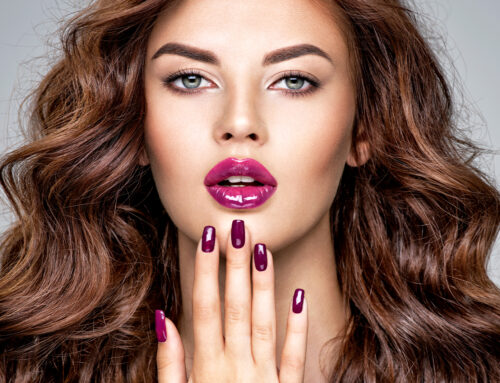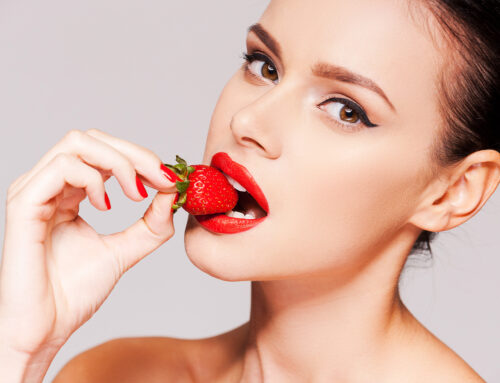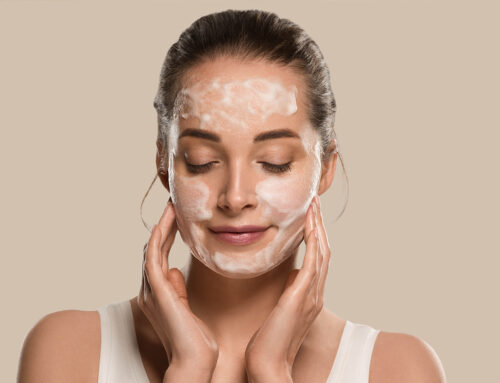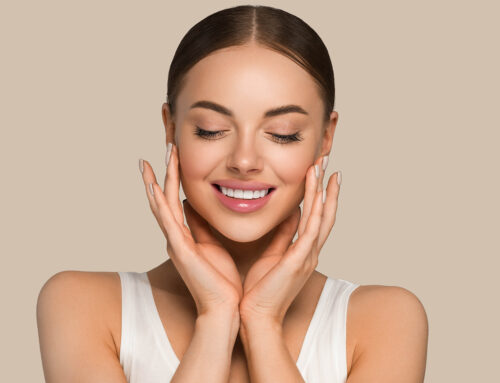Roses are red, violets are blue. But did you know that roses have cell rejuvenating properties that can minimize the appearance of scars, wrinkles and stretch marks too? If you’ve been a loyal follower of the eco-beauty trend, then you know that organic products are all about substituting synthetic chemicals with flower and plant extracts. But if you’re new to the green scene, you may be wondering why your moisturizer’s ingredients list is looking more like a garden.
In many cultures across the world, flowers are one of the most sought-after natural remedies for a variety of ailments—from headaches and digestive problems to anxiety and fatigue—and are often used as essential oils, carrier oils and even consumed as food. And when it comes to skin care, they’re not only used as a natural way to add color and fragrance but are also valued for their gentle yet potent healing properties that address a host of skin concerns and beauty needs. Floral extracts contain vitamins and antioxidants that help moisturize, cleanse and smoothen skin, as well as fight early signs of aging and free radical damage. The easiest way to enjoy the skin benefits of flowers is by reaching for products that are specially formulated with floral essential oils. Another option would be to mix a few drops of flower oil with your favorite night cream or moisturizer. As a precaution, it’s important to do a skin test before using any product as some floral extracts—although gentler and less likely to cause serious irritations—still contain allergens commonly found in nature.
Want know more about the wonders that flowers do to your skin? We made a list of the top floral ingredients you will find in beauty and skin care products and their amazing benefits.
1. Rose
Roses are known for their intense hydrating properties, which make them perfect for mature and dry skin. Rose extract is “a cell rejuvenator that helps minimize scars, stretch marks and wrinkles,” says beauty specialist and aromatherapist Janice Rosenthal, owner of Garden of Essences. “It heals broken veins and calms inflamed or sunburnt skin.”
2. Passion Flower
Passion flower “contains lycopene, which assists skin that’s recovering from sun-induced damage, and is a top anti-aging component,” says Rosenthal. “It contains 72% linolenic acid (omega-3), making it effective against inflammation, redness, flakiness and eczema.” Native to the Amazon, passion flower oil or maracuja oil is rich in vitamin C, calcium and fatty acids, making it a perfect ingredient for products that are formulated to target dry, mature and cracked skin. This R+Co paste contains passion flower, which is a powerful ingredient in keeping hair and scalp healthy.
3. Sunflower
One of the most versatile oils, sunflower oil works wonders for your hair and skin with its head-to-toe beauty applications. Because of its high linoleic acid content, sunflower oil is highly recommended for acne-prone skin. It’s also rich in antioxidants that help protect and restore damaged skin. Among its plethora of benefits are: moisturizes, hydrates and cleanses skin; relieves sunburn, redness and insect bites; lightens dark spots and pimple marks; smoothens underarms and lightens elbows and knees; smoothens soles of the feet and relaxes tired, puffy eyes.
4. Marigold
As one of the most potent medicinal flowers, marigold’s natural healing abilities provide relief from a variety of health and skin concerns. It has anti-fungal, antibacterial and anti-inflammatory properties that make it effective in preventing acne as well as in treating skin irritations like eczema, dermatitis, rosacea and fungal infections. Marigold also contains powerful antioxidants that fight premature aging and damage from free radicals. However, if you have a known allergy to flowers from the daisy family, it’s best to hold off on marigold-infused products.
5. Chamomile
When we think of chamomile, we think of tea, but chamomile actually has a long history of medicinal uses, dating back to ancient Egypt, Rome and Greece. For starters, it has anti-fungal, antibacterial, antiseptic and antioxidant properties—making it a multitasking ingredient that addresses skin concerns ranging from acne and swelling to scars and minor abrasions. “It also has a high concentration of azulene, making it an excellent anti-inflammatory, and has superb moisturizing properties that help with dry and mature skin.” As a precaution, those with allergies to flowers from the daisy family should refrain from use of chamomile products.
6. Hibiscus
As an abundant source of alphahydroxy acids (AHAs) and antioxidants, the hibiscus flower is highly effective in reviving the skin’s elasticity and fighting the signs of aging. “These natural AHAs help exfoliate skin, speed up cell turnover and help control breakouts,” says licensed esthetician and holistic nutritionist Pearl Dworkin, owner of Facials by Pearl. “The hibiscus plant also contains polysaccharides, which make it very healing and moisturizing.” (Guess it’s not nicknamed “the botox plant” for nothing!)
7. Lotus
An esteemed flower in Asian cultures, the lotus flower is known for its oil-controlling and hydrating properties. But not only does it balance oily skin by controlling the production of sebum of our sebaceous glands, it’s also packed with antioxidants that combat free radical damage and prevent premature aging. It also contains vitamin C, B complex and A—all essential in reducing inflammation and keeping skin healthy.
8. Lavender
Known for its calming and relaxing effect, lavender is often used in spa treatments and aroma therapy, but the uses of this delicate flower doesn’t stop there. “It is cytophyllactic, which means that it increases cell renewal, so use it for scars, wrinkles, burns and stretch marks,” says Rosenthal. Its petals are also known to have a lightening and clarifying effect on skin when used in face masks and creams. Aside from reviving skin cells, it’s also heralded for its antiseptic and anti-inflammatory benefits.
9. Calendula
A close cousin of marigolds, the calendula flower is valued for its soothing and anti-inflammatory properties, which can alleviate anything from acne and eczema to diaper rash and insect bites. It’s also a potent source of antioxidants. “A staggering 19 carotenoids have been identified in calendula’s petals, which act as antioxidants, effectively healing damaged skin,” explains Rosenthal. It’s also effective against the treatment and prevention of stretch marks and scars as it boosts the skin’s collagen levels.
10. Jasmine
Fragrant and exotic are how we would usually describe jasmines, but within this dainty little flower are potent antioxidants that protect the skin from sun-damage and pollution. It’s also known to hydrate and smoothen the skin, reduce age spots and fine lines and nourish dry skin. Together with its calming effect, jasmine ranks high among favorite organic ingredients for body lotions.
11. Elderflower
Elderflower has a long history of medical application, from treating the common flu and allergies to boosting respiratory health. This comes as no surprise because elderflower contain antibacterial and anti-inflammatory properties that also make it a great skin care ingredient. In fact, because of the elderflower’s beauty benefits—from its softening effect to its anti-wrinkle properties—it’s one of the most common floral extracts used in natural beauty products, particularly in toners and face creams.
12. Echinacea
Commonly found in North America, echinacea is lauded for its antibacterial, anti-inflammatory and healing properties, making it perfect to combat acne and other skin irritations. It’s also rich in tannins, a substance that acts as a natural astringent and helps in shrinking and tightening skin cells. Echinacea extract is commonly used in moisturizing creams, acne-fighting toners and anti-aging serums.








Leave A Comment